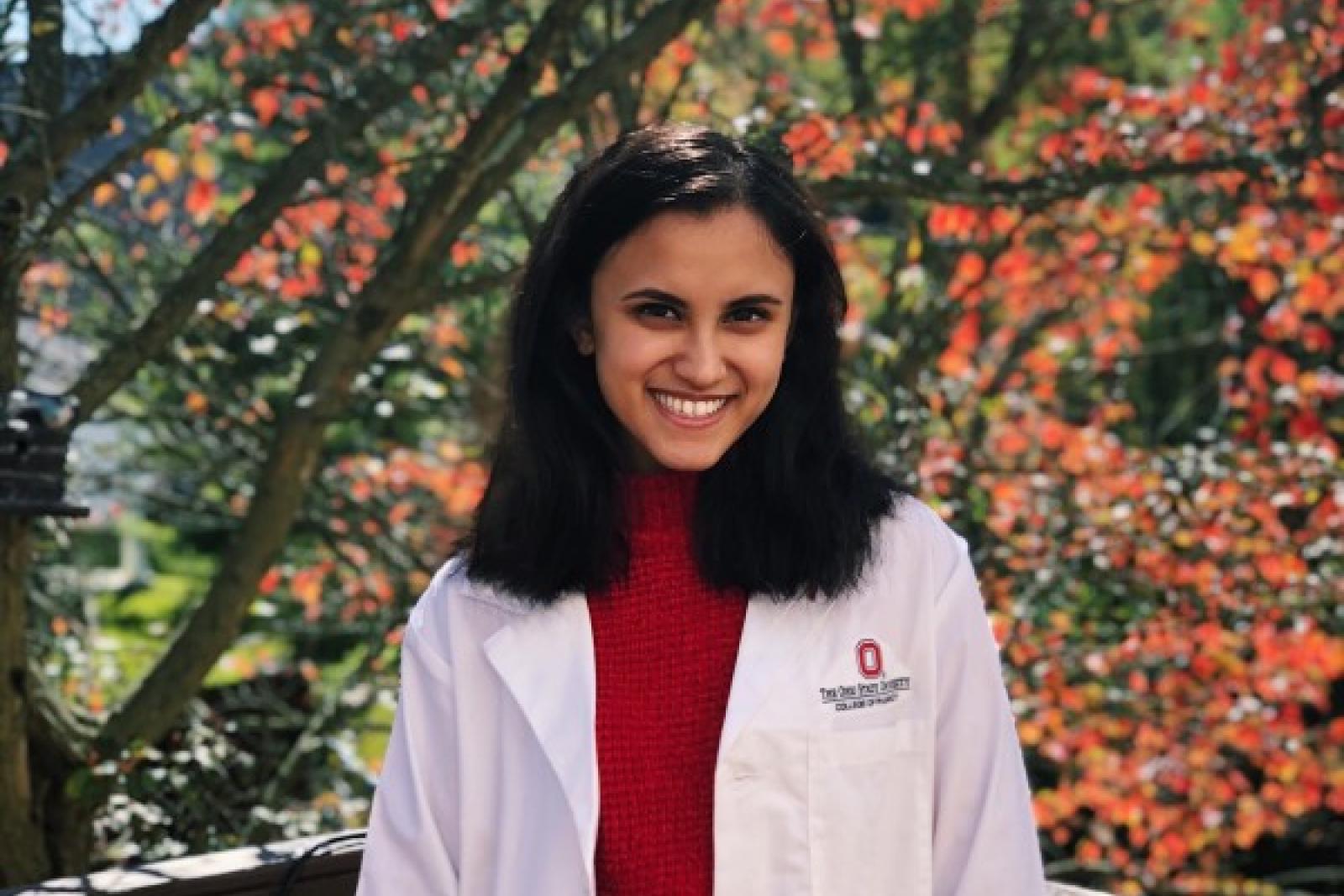Expanding health care to underserved patients through Medicaid access –Schweitzer Fellowship, part two

PharmD student Nidhi Kanchan was selected for this year’s Columbus-Athens Schweitzer Fellows Program by creating a Medicaid education, screening and enrolling program for underserved patients at the Saint Vincent DePaul (SVDP) Charitable Pharmacy in Cincinnati, Ohio.
Kanchan’s program will educate the pharmacy’s patients about Medicaid, determine if they are eligible and assist them in enrolling. The objective is that these patients will have access to many more health care resources that they weren’t able to afford before and that aren’t offered by the pharmacy. The program will also help SVDP Charitable Pharmacy expand their health care services and save resources for those who are not Medicaid eligible.
Kanchan volunteered at the SVDP Charitable Pharmacy before the Schweitzer program began and established relationships with pharmacy employees and their patients. Through her service, she found that because of COVID-19 and limited staff volunteers and resources, the pharmacy was four-to-five months behind Medicaid eligibility screening – a screening that usually happened monthly – and only 15% of their patients were applying to Medicaid.
Kanchan saw this as an opportunity to implement a sustainable program that helps the pharmacy’s patients learn about Medicaid, determine if they are eligible and apply for Medicaid any time they come in to pick up their medication.
To assist in implementing the program’s first year, Kanchan applied for the Schweitzer Fellowship Program after hearing about it from Jennifer Rodis, PharmD, BCPS, FAPhA, associate dean for Outreach and Engagement and professor of Pharmacy Practice and Science. Dr. Rodis helped Kanchan find her mentor for the project, Kristin Casper, PharmD, RPh, BCACP, clinical pharmacy professor and chair of the Division of Pharmacy Education and Innovation at The Ohio State University College of Pharmacy.
“These community issues may seem unreachable, but this program breaks it down and allows students to really have the financial and faculty mentoring and collegial support for their projects,” Dr. Casper said. “I think this program is unique in that it helps form a cohort of students, so that they have mentoring from their official faculty member, and they also have mentoring from each other. That is an important aspect of this program that really makes it successful.”
Kanchan’s goal is to see the 15% of patients applying to Medicaid increase to 25%. To educate the pharmacy’s patients, determine if they are eligible and to help them apply, Kanchan’s program with the pharmacy will have pharmacists and volunteers talk with patients specifically about what benefits they would receive when they come in for their appointments.
The pharmacy will give the patients flyers and personalized information. If patients are interested, the pharmacy will help them apply and notify them whether they are approved or not.
Many patients in this underserved population may not have the time or resources to research this information by themselves, so this program will eliminate that burden for them and help them access the medical coverage they need, not only for their prescriptions, but for other health care services.
The pharmacy will not force, but encourage patients to apply for Medicaid if they are eligible so they can receive health care that is more than medication. This program is broad in what it can do for patients.
“There was a patient who came to us in critical need of prescription medications and through her appointment at the pharmacy, I was able to educate her about Medicaid and taught her how to apply,” Kanchan said. “Once she was approved, she called us crying because finally she could get a surgery that her doctor recommended.”
The Schweitzer Program is a perfect opportunity for students to implement their own passion projects to tackle social determinants of health.
“Nidhi has a strong desire that is focused on underserved patient care and I’m excited for her to see the impact of even a small process change that will help a lot of patients,” Dr. Casper said. “She’s really paving a path for other students and pharmacists to come through and help with this overall problem.”
About the Schweitzer Fellowship Program
The Schweitzer Fellowship Program aims to develop a pipeline of skilled and compassionate emerging pharmacy professionals that will engage in public service initiatives to eliminate health disparities by addressing the social determinants of health in local underserved individuals and communities.
The program grants graduate and professional students a $3000 stipend to carry out a year-long community service project of at least 200 service hours. One-hundred hours involve direct client contact. The students develop and lead their own projects, relevant to the program’s mission, with a community-based partner and academic mentor.